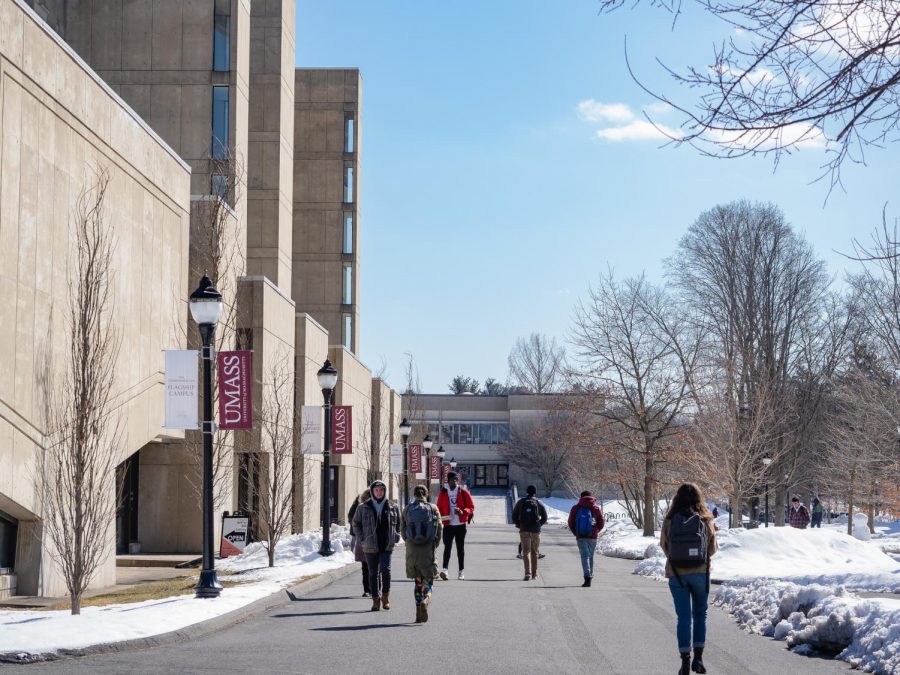In light of the multimillion-dollar scandal which implicated 33 parents for bribing coaches and officials to have their children admitted to elite universities, many have lamented the descent of higher education into a corrupt industry run by businessmen, bureaucrats and celebrities. Many more, however, were unsurprised by this scandal’s unfolding, seeing it instead as a confirmation of their long-held suspicions. This notion speaks to the public’s shrinking trust in a process that continues to be the academy’s closely-guarded secret: admissions.
Most universities in the United States adopt a “holistic” approach to selecting their students, but what does “holistic” mean? A 2017 University of Michigan study conducted on 311 admissions officers from 177 institutions revealed that there is little consensus on what the term “holistic review” entails. The UMass Undergraduate Admissions Office states that “In addition to academic achievements, we are interested in the behaviors and attitudes, such as a love of learning and intellectual curiosity, that make students great learners and full contributors to the vibrancy of a campus community.” A further breakdown of factors taken into consideration includes “co-curricular involvement,” “personal qualities” like maturity and character and “life context” such as cultural background, race and ethnicity. Firstly, it is hard to imagine an objective means to evaluate one’s “character” and “curiosity.” Furthermore, the manner and extent to which race, cultural background and co-curricular involvement weigh into the decision-making process is left entirely to the reader’s imagination.
This is especially troubling since the prudence of considering many of these factors is widely disputed. A study published last month by the Pew Research Center revealed that 73 percent Americans oppose the consideration of race or ethnicity as a factor in admissions, 68 percent oppose considering legacy status and 57 percent oppose considering athletic ability.
In his book, “The Chosen,” author Jerome Karabel extensively documented how the “holistic” admissions process came about in the 1900s with the intention of limiting the number of Jewish students admitted to Harvard University. Today, it is argued that Asian-American students are subject to similar treatment. An analysis of 160,000 student records conducted as part of the ongoing lawsuit against Harvard University revealed that Asian-American applicants were consistently rated lower on traits like “positive personality,” likability, courage, kindness and being “widely respected.” This is even though they demonstrated no lack of extracurricular activities, leadership, test scores or grades. My previous article covers this issue in more detail.
Race and ethnicity aren’t the only questionable considerations. Sara Habberman, former dean of admissions at UPenn, revealed that student being admitted often rely on their application carrying a “tag.” This tag, she explains “identifies a student as a high priority for the institution. Typically, students with tags are recruited athletes, children of alumni, children of donors or potential donors, or students who are connected to the well connected. The lack of a tag can hinder an otherwise strong, high-achieving student.”
In a press conference following the aforementioned bribery scandal, Massachusetts District Attorney Andrew Lelling said, “We’re not talking about donating a building so that a school is more likely to take your son or daughter. We’re talking about deception and fraud.” His statement is a sad testament to the quotidian nature of wealthy parents making “donations” to elite universities. However, the two scenarios that Lelling attempts to distinguish are essentially the same. As the New York Times editorial board stated, “Whether students are admitted because their parents paid for a boathouse, or because their parents bribed the sailing coach, it is still the case that merit alone is not deciding the issue.”
If not for lawsuits and research exposés, there is little the American public knows of the inner workings of the admissions process. This lack of transparency does more than just damage public trust in college admissions, it feeds the pockets of admissions consultants, who charge exorbitant amounts to lend wealthy students an exclusive peak into the otherwise opaque world of college admissions. This further decreases the accessibility of elite schools to low-income students by turning admissions knowledge into a marketable commodity.
Because there is not a set definition to the term “holistic review,” universities can do whatever they want under its garb. This places too much power in the hands of admissions officers. Perhaps the answer is to move away from the “holistic” model and toward one more centered around standardized testing which, despite its imperfections, continues to be a uniform, relatively objective means to compare students across varying socioeconomic backgrounds.
In the aftermath of the scandal, however, some have suggested scrapping standardized testing altogether, declaring it deeply unfair. Data, however, contradicts such claims. That the Scholastic Aptitude Test (SAT) shows some correlation with parental income in no way proves causation between the two. As Steven Pinker points out, it is perfectly plausible that “smarter parents have smarter kids who get higher SAT scores, and that smarter parents have more intellectually demanding and thus higher-paying jobs.” Moreover, research suggests that SAT and American College Testing (ACT) are strong predictors of success in college and beyond, even after taking socioeconomic status into account. As for test preparation, despite tutors’ bold claims, there is little evidence that it offers anything more than a modest boost in grades.
Standardized testing is not perfect. Tighter security and lowered test-taking costs are badly needed to make the process fairer. However, in the absence of the SAT exam, the admissions process will rely heavily on scores, extra-curriculars and athletic ability – which are much easier to manipulate, as demonstrated by the recent scandal. As Jonathan Wei explains, “If the SAT were nothing but a wealth test, then Lori Loughlin, Mossimo Giannulli and other super-rich parents would not have had to cheat to get their kids into the latter two schools. In reality, they had to fake intellectual ability — the one thing they could not buy.”
I’m not advocating for a one-dimensional admissions process. But whatever the criterion, the least universities can do is lay all their cards out on the table.
Bhavya Pant is a Collegian columnist and can be reached at [email protected].




















